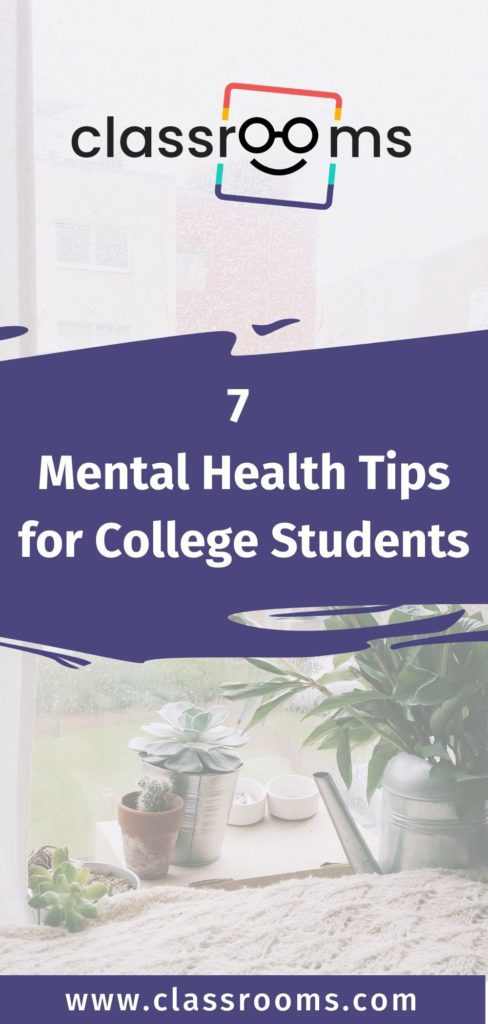
We are a reader-supported education publication. When you buy through links on our site, we may earn an affiliate commission to help us keep providing content.
If you’re like most students, you’re probably experiencing a fair amount of stress right now. On top of figuring out virtual classes and navigating the chaos of 2020, you now have to worry about taking exams, meeting deadlines and managing group projects with other students. If the mere thought of adding another assignment to your to-do list sends you into a panic, you certainly aren’t alone.
Amidst the COVID-19 pandemic, student mental health has become a major concern. Roughly 81% of college students admit that they’re dealing with some level of anxiety and 60% are concerned about their mental health. Yet, most of them aren’t seeking professional help. Instead, they’re turning to friends and family for support and developing coping mechanisms.
As these coping mechanisms are healthy and positive, you may be able to improve your mental health on your own. Here are a few ways to do just that.
1. Eat Nutritious Meals
Yes, that midnight Taco Bell run or Friday night pizza sounds tempting but, if you’re suffering mood swings, you may want to stick to a healthier diet. Filling up on carbs, sugar, and high-calorie foods will only exacerbate depression and anxiety nd worsen your mental health. Stick to a healthy diet of whole grains, fresh fruits and vegetables and lean proteins to improve your mood instead. You might even slim down and enjoy a confidence boost, too!

2. Move Your Body
You can also combat seasonal affective disorder, anxiety, stress and other mental health issues with regular exercise. Moving your body often and engaging in aerobic and anaerobic exercise will boost serotonin levels in the brain. In turn, the release of these endorphins can improve everything from your appetite to sleep schedule — both of which directly affect mental health. Peruse the fitness classes at your campus rec center, find a workout buddy and get moving.
3. Reconsider Your Major
If current events and your workload aren’t stressing you out, but you’re still experiencing general unease, take a hard look at your major. It isn’t uncommon for second and third-year students to change theirs after attending a few semesters of college. As your interests change and you discover career paths, you might want to do the same. Talk to your advisor if you’re unhappy with your major and find a more fulfilling option for you.
4. Get Enough Sleep
Getting enough shuteye is essential to improving and maintaining good mental health. Yet, more than 85% of students admit that the pandemic has disrupted their sleeping patterns. If you’re one of the many struggling to fall — and stay — asleep at night, try going to bed and waking up at the same time every day. Turn off your phone a few hours before bed, try reading a book, or soaking in a warm bath before turning in.
5. Avoid Drugs and Alcohol
While you’re working on getting more sleep, consider giving up drugs and alcohol. These substances can reduce your quality of sleep so you wake up feeling exhausted. Plus, if you develop an addiction, you may increase your chances of developing a mental illness. In fact, half of those who experience mental health problems also experience substance use disorder, and vice versa. Turn to more natural remedies like essential oils and hot tea to calm your nerves, instead.
6. Build a Support Network
Whether you’ve been in college for one year or six, you can benefit from building a support network. Having people to lean on when you’re dealing with symptoms of poor mental health or the stress of everyday life can encourage you to press on. More importantly, they’ll point you to helpful people and coping strategies that you might not have considered. Connect with friends, family, professors, advisors, and anyone else you feel can help you rise above and succeed.

7. Visit Your Campus Counselor
If your friends and family can’t provide the support you need or you think you might need professional help, don’t be afraid to reach out. There’s no shame in speaking with a therapist or psychiatrist, especially if you can’t determine why you’re feeling anxious, depressed or overwhelmed. Visit your campus counselor, first. They typically provide several free counseling sessions to students and can point you in the right direction if you need off-campus help.
Reprioritizing Your Mental Health
As you begin to put these tips into practice and apply them to your life, remember that your wellbeing matters. The time and money you dedicate to improving your mental health are more than worth it, and there’s no shame in asking for help. During this season of unrest and worry, continue to reprioritize your mind and re-establish self-care routines. The more you invest in yourself, the happier you’ll be. Why not start today?









